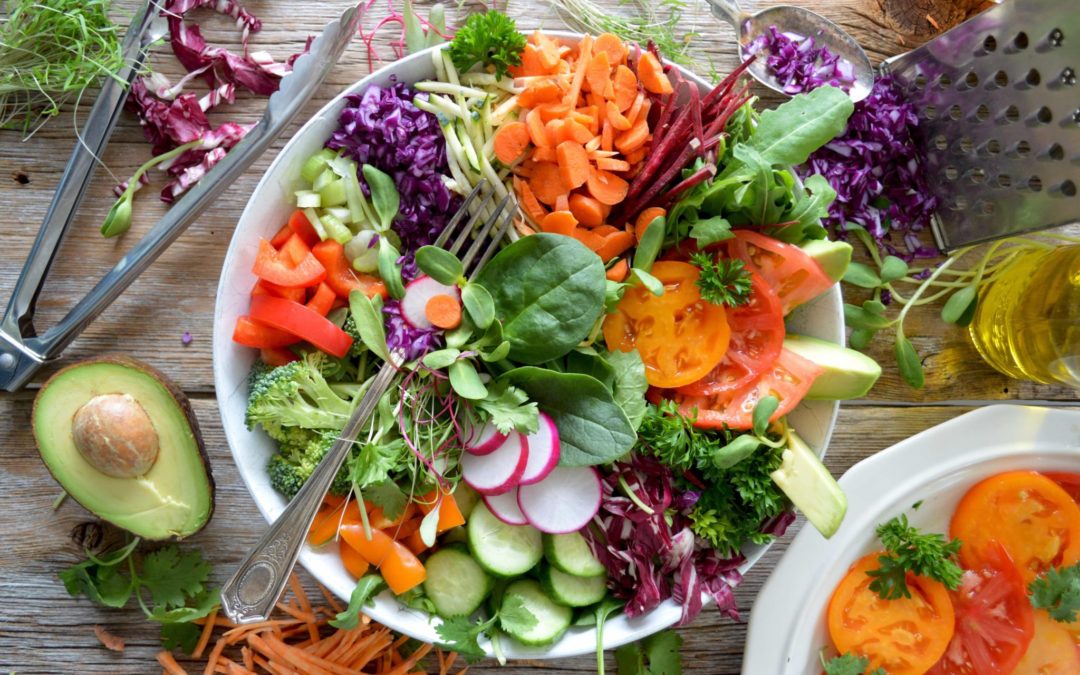The Recovery from Bushfires Can be Very Stressful
We are all aware of the devastation caused by the bushfire season, storms, rain and hail. Due to the shock and extent of the damage from bushfires people are asking, will this be the new norm for our summers in Australia? The recovery can be very stressful, so here’s how herbal medicine and nutrition might help. First, of all, let’s understand what stress is.
What is stress and why does it occur?
Stress occurs, as a result, of a stressor, this can be anything that challenges or threatens you causing more pain than pleasure, more loss than gain, more hate than love. Either physical loss, emotional loss, financial loss, social loss, romantic loss, political loss, losing a home, losing a comfortable lifestyle, losing one’s status, etc.
A typical reaction to stress is the “fight or flight” response which immediately triggers the release of chemicals like cortisol to prepare the body to fight, flight or freeze. Typical symptoms are:
- The heart beats faster.
- Blood vessels dilate and move blood from the skin to muscles.
- Glucose is released.
- Digestion is turned off.
- In extreme cases – loss of bladder control, loss of peripheral vision and shaking occur
Long term effects of stress can be detrimental and disturb the bodies homeostasis setpoint. Homeostasis is your body’s ability to maintain a state of internal balance and well-being in spite of challenges and external factors. As a result, long term stress can cause a whole myriad of conditions like; anxiety, depression, irritable bowel syndrome, high blood pressure, and diabetes.
Adaptogens what are they used for?
Mother nature has kindly provided us with some herbs to support the body’s ability to accommodate these challenging times. Acting like a buffer adaptogens are taken in times of stress giving you the ability to operate at higher stress levels without harming the body. Great for university exams, HSC tests, financial pressures, athletics meets, job deadlines, peer pressure, and general stress and anxiety. Adaptogens are especially helpful if you are dealing with bush fires and the associated stress brought about by bushfires.
How do adaptogens help you cope with life’s stressors?
They work at a cellular level by stabilising and balancing the chemicals produced by the fight or flight. Essentially adaptogens “white hack” the response by downregulating, the signal and help to reduce cortisol levels. Here are some adaptogenic herbs:
- Ashwagandha (Withania somnifera) – strengthens and tonifies the body when it is under stress and extreme stress.
- Siberian ginseng (Eleutherococcus senticosus) – increases stamina and resistance to stress.
- Schisandra (schisandra chinensis) improves performance and resistance to stress.
- Rhodiola (Rhodiola rosea) – good for fatigue and sensation of weakness
- Reishi (Ganoderma lucidum) is a medicinal mushroom that is potent immune modulator when the body’s under stress.
Not everybody needs the same adaptogens. It is best to match up the specific herbal remedy for your unique situation. See your health care professional.

Anxiolytic herbs and nutrients for heightened levels of stress.
Sometimes the level of stress is so great that it triggers anxiety, and this can be very debilitating to day-to-day living and impacting on jobs, relationships, and family. Thankfully we have anxiolytic herbs and nutrients to treat these symptoms. They are beneficial and can be used as part of a plan for managing this stressful time. Anxiolytic is made up of two root words anxious and lytic.
- Anxious means to be distressed and or troubled.
- Lytic comes from lyses, meaning a gradual subsiding of symptoms.
As the name suggests these herbs and nutrients reduce feelings of anxiety. Common herb and nutrients use as anxiolytics are:
- Passionflower (Passiflora incarnata) calms down the over wired mind.
- Valerian (Valeriana Officinalis) sedative herb, good for insomnia.
- Kava (Piper methysticum) reduces nervousness and pain.
- Chamomile (Matricaria recutita) releases tension and relaxes. Supports digestion secretions. Ideal for calming kids.
- Ginkgo biloba is neuroprotective and increases circulation to the brain.
- Skullcap (Scutellaria lateriflora) relaxes the nervous system, works well with valerian.
- GABA (gamma-aminobutyric acid) is an inhibitory neurotransmitter, calms the overexcited mind.
- Theanine is an amino acid found in green tea, and it increases GABA.
- Tryptophan is an amino acids precursor to serotonin and stabilises mood.
- Phenylalanine is an essential amino acid for the production of norepinephrine, tyrosine, and dopamine.
You will find formulations containing these herbs, and may also like to introduce some as teas like chamomile and valerian into your daily lifestyle.
Always check with a health care professional before starting on any herbs or nutrients.
Self-care techniques that reduce stress and anxiety
1. Exercise significantly reduces anxiety.
- Brisk walking
- Yoga
- Resistance training
2. Diet also plays a significant role. High carbohydrate diets increase the stress response, not only to the nervous system but the pancreas to.
- Weight gain commonly follows stress as we eat to soothe the emotion.
- Increasing protein and reduce carbs and salt will help to calm the mind.
- Eating hygiene also supports nervous system via improved nutrient uptake.
3. Diaphragmatic breathing is an excellent way to reduce stress.
- Lie down face up on a bed, place one hand on your belly and the other on your chest. Breath in through your nose slowly so that your hand on belly raises up slightly, hold it 1 second, and then release the breath through the mouth, do this for ten breaths. Once finished, slowly get up off the bed.
- The sitting up position. Put your feet firmly on the ground. Place one hand on your belly and the other on your chest. Breath in through your nose slowly so that your hand on belly pushes outwards slightly, hold it for 1 second, and then release the breath slowly through the mouth, do this for ten breaths. This practice can be done throughout the day to manage stress.
In a nutshell
To summarise stressors are anything that challenges or threatens you causing more pain than pleasure, more loss than gain. Adaptogenic herbs act as a buffer and allow us to tolerant higher stress levels without harming the body. Herbs like Ashwagandha help the body cope with extremely stressful situations and strengthens and tonifies the body. When anxiety is present, anxiolytic herbs and nutrients reduce feelings of anxiety.
Herbs like passionflower calm down the wired mind — nutrients like tryptophan help to stabilised mood. Also, you can implement self-care techniques that reduce stress and anxiety-like exercise, implementing a balanced diet and diaphragmatic breathing.
The suggestions in this blog are general in nature and are for educational purpose only. The recommendations do not take into account your specific needs. Before you make changes to your routine or embark on any supplements, it is wise to check with your health care professional.
If there are any aspects of your diet you would like to discuss or clarify, please feel free to contact me through this website. Ultimately, my goal is to provide you with the knowledge to decide what diet best supports your health needs.
In health and wisdom
Brendon

Written by:
Brendon Groves
Clinical Naturopathic Practitioner
Founder of “Groves Naturopathics” and “The Groves Lifestyle Diet”
Adv. Dip. H. Sc. Nat, Dip. H. Sc. H.M., Dip. H. Sc. Nut.
Advance Diploma of Naturopathy, Diploma of Nutrition, Diploma of Herbal Medicine.
Special interests in: Weight loss, digestive issues, anxiety and mood disorders, immune support.





